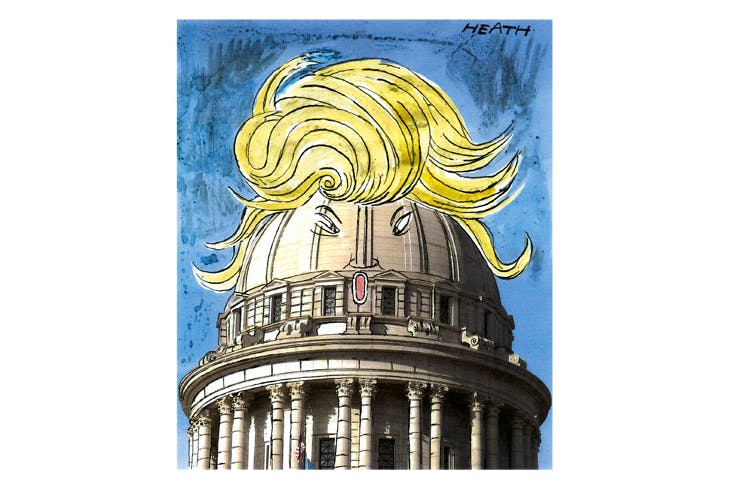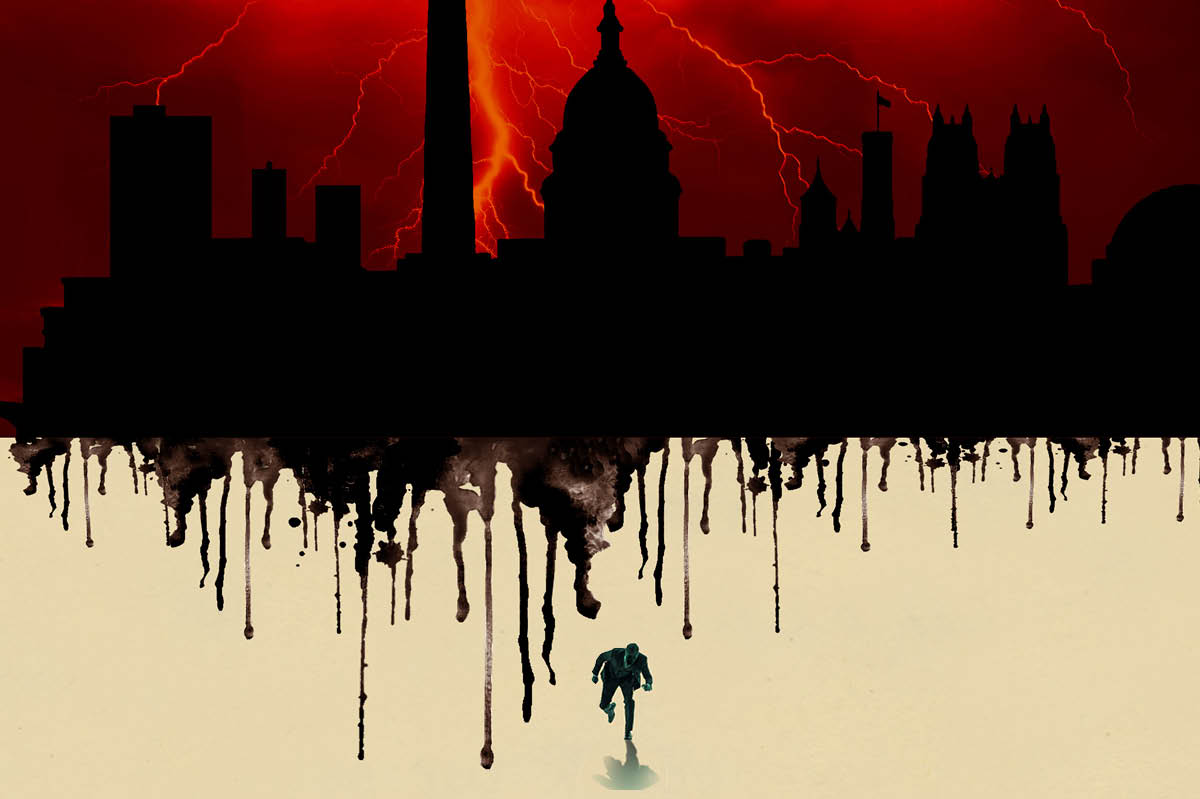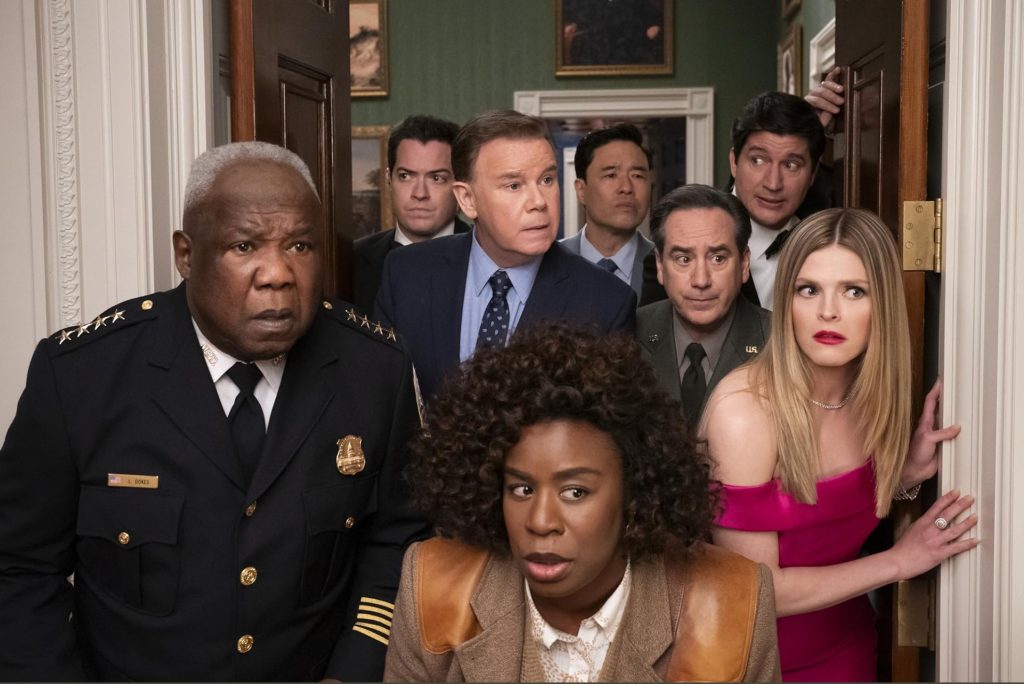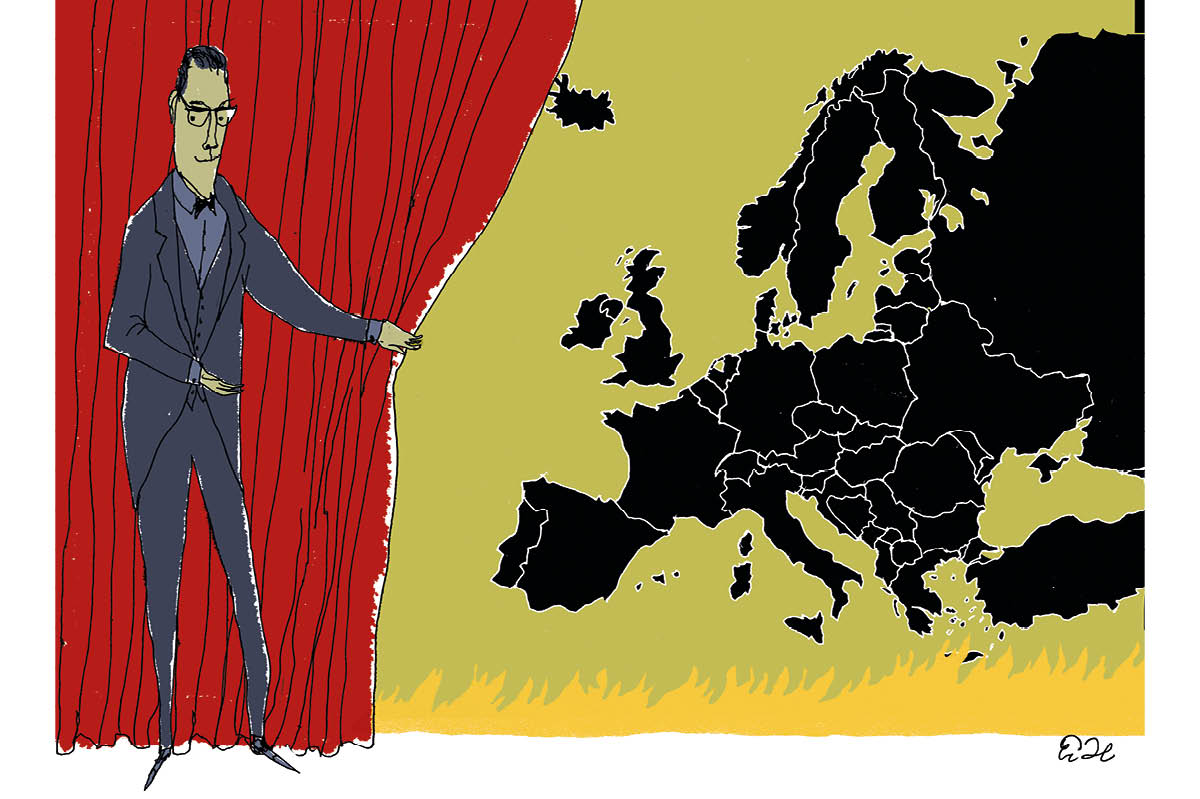Washington in this season of impeachment has been strikingly unconsumed with it. The city is quiescent if you compare it to London during Brexit, or New York or Rome during anything. The country is split down the middle, making this a very dangerous time to suspend democracy, which, of course, is what an impeachment does.
But Washington is not so split. Remember that the District of Columbia voted against Donald Trump in 2016 by a margin of 93 percent to 4 percent, and its heart has hardened since. Every inquiry about Trump has one question at its core: is he morally fit to be president? His DC opponents answered it to their satisfaction long ago. Given the way he framed the election of 2016 — as a plebiscite on their corruption — if his victory is legitimate, then their position is not. They have declared his election non-receivable and will back any practicable scheme to remove him. None of them quite understands the gravity of what they are hatching. But there’s no chance in this neighborhood of their meeting anyone who would explain it to them.
My next book, The Age of Entitlement: America Since the Sixties, comes out in January. I’d urge you to read it, but apparently more and more people listen to books. So I’ll just urge you to consume the thing in whatever medium you prefer. My publisher recently asked if I might record the book on tape, in my own voice. I’m told it will require 32 hours in the studio and several boxes of cough drops.
It now occurs to me that a lot of the more controversial propositions in my book are going to sound different when declaimed into a microphone than they did when laid out on a page. So many avenues of misunderstanding open up when you read aloud. A lot of them involve emphasis. Joseph Conrad has a short story called ‘The Secret Sharer’ — stress on the third word — about a sea-captain who takes a doppelgänger aboard as a stowaway. If you stress the second word, it sounds like a story about a gossip.
Similarly, Sapporo’s baseball team is called the Nippon Ham Fighters. Stress the third word and you have an accurate picture: a team called the Fighters, owned by the food company Nippon Ham. Stress the second word and you picture some ancient Shinto martial art in which men, probably naked as sumo wrestlers, try to knock one another over with their buttocks.
In November Don Cherry got fired from his job as a commentator on Canada’s national hockey broadcasts for the crime of lèse-diversité. Cherry coached some of the great Boston Bruins teams of my childhood, at the end of the era of Orr and Esposito. The surprise was not that a blunt-spoken sports commentator would get axed in the most censorious country on the planet, but that the tongue-tied Cherry could ever string together a sentence coherent enough to offend anybody.
And, indeed, this is what he said:
‘You go to the small cities and you know, the rows on rows — you people love, you that come here, whatever it is, you love our way of life, you love our milk and honey. At least you could pay a couple of bucks for poppies or something like that. These guys pay for your way of life that you enjoy in Canada. These guys paid the biggest price.’
You’d have to be an exegete to be offended. What Cherry seemed to be saying was that he regretted that contemporary Canadians, particularly new immigrants, were abandoning the tradition of wearing a poppy in their lapels to commemorate the veterans of World War One. The British still honor that tradition. It faded out in America in the 1970s. Certain people regretted its disappearance here, too, but I don’t recall any of them losing their jobs over it.
It’s stooping low to fire an 85-year-old guy the day after Remembrance Day (the Canadian Veterans’ Day) for honoring fallen servicemen with insufficient eloquence. But Cherry’s employer, Sportsnet, found enough aggrieved ‘spokesmen’ for ‘communities’ to throw him out on his ear. Perhaps that’s what they wanted to do anyway. Perhaps Canada has grown so prudish and unfree that accusing someone of ‘insensitivity’ is the only way to unload an 85-year-old employee without being sued for ageism.
The Swedish teenage sensation Greta Thunberg has literally sailed away after two months of US barnstorming about global warming. She struck more of a chord in progressive journals than in American hearts. Climate activism is a staple in such magazines because the issue offers a hero’s role for intellectuals. As the earth’s population rises towards 10 billion, feeding everybody and keeping the global economy running without exhausting our resources is going to require high-IQ logistical juggling and probably some new inventions. Not every problem is like that. Other horsemen of the information-age apocalypse — gene manipulation, nuclear weapons, blanket surveillance — tend to be problems that smart people got us into and, given free rein, are likely to make worse. Perhaps the much-lamented dumbness of our popular culture is, at some unconscious level, rational and self-protective.
This article is in The Spectator’s December 2019 US edition.

























